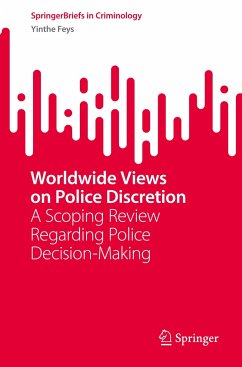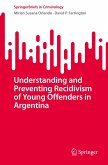This book gives an overview of the empirical research regarding police discretionary decision-making worldwide through 2022 by means of a scoping review. In total, eleven databases were searched and 15,193 publications have been assessed in terms of relevance for this topic, with 1,563 of these being assessed more thoroughly. The shortlist consists of 526 publications. It answers the following questions:
What is the amount of available research concerning police decision-making and what are its characteristics?How and where is police decision-making studied?Which crime phenomena are studied?Which types of decisions are studied?Which factors impact police discretion?Overall, the scoping review summarizes the available empirical research on police discretion and helps understand police decision-making processes. These findings are then used to discuss the current scholarship and give recommendations concerning research (e.g. which decision-making processes/decisions are currently lacking in research, which factors need to be explored further, which research methods can be utilized more frequently) and police practice (i.e. how to support police officers in their decision-making and optimize these decision-making processes).
What is the amount of available research concerning police decision-making and what are its characteristics?How and where is police decision-making studied?Which crime phenomena are studied?Which types of decisions are studied?Which factors impact police discretion?Overall, the scoping review summarizes the available empirical research on police discretion and helps understand police decision-making processes. These findings are then used to discuss the current scholarship and give recommendations concerning research (e.g. which decision-making processes/decisions are currently lacking in research, which factors need to be explored further, which research methods can be utilized more frequently) and police practice (i.e. how to support police officers in their decision-making and optimize these decision-making processes).








